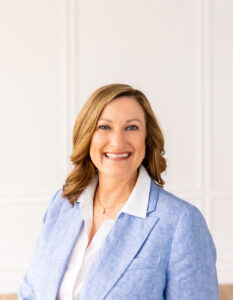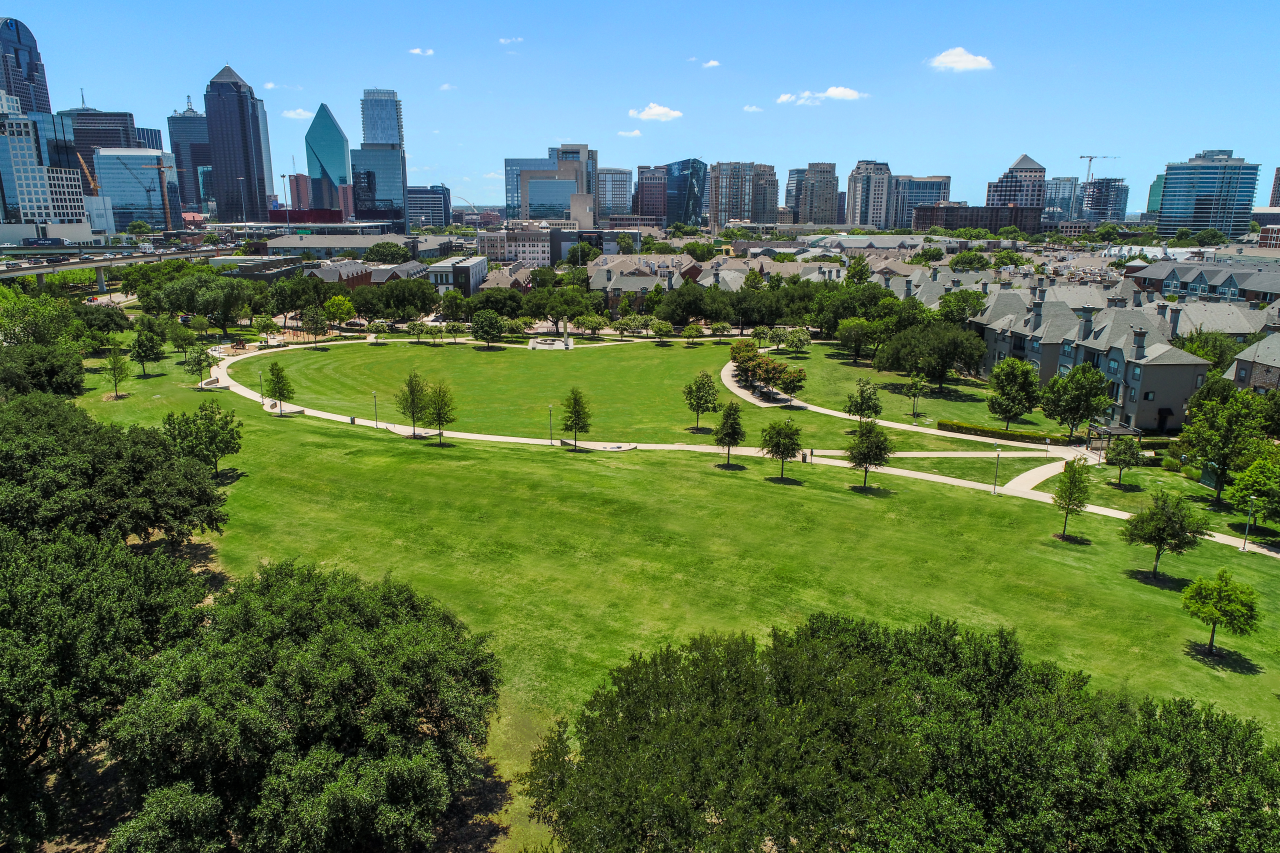 Before Jamee Jolly became president and executive director of the 30-year-old nonprofit public improvement district Uptown Dallas, Inc. (UDI), she was very familiar with the Uptown area. Her father was a truck driver.
Before Jamee Jolly became president and executive director of the 30-year-old nonprofit public improvement district Uptown Dallas, Inc. (UDI), she was very familiar with the Uptown area. Her father was a truck driver.
“He drove for a little freight company, had been in Dallas for years and did a lot of driving around the city,” said Jolly, who assumed the leadership position at Uptown Dallas on March 13. “We used to laugh because when I was growing up and after I came back from college, I’d drive, get lost and call my dad, and he would say, ‘Well, go down and take a left where the church used to be.’ I’d say, ‘Dad, if it’s not there, I don’t know where to turn left.’ But he knew the innerworkings of Dallas.”
While serving as an endorsement for the importance of Google Maps, the homespun tale is also indicative of the ever-evolving real estate footprint known as Uptown. “When I moved into Uptown, I lived at Blackburn [Street] and Cole [Avenue] and my Dad had been out of Dallas for a couple of years. He’d ask, ‘Where are you living?’ It was a different kind of community.”
Arguably, over the past 40 years, no area of Dallas has experienced more transformation. In 1983, there was no Crescent Court, no West Village, no trollies running up and down McKinney Avenue and few bars, restaurants, shops and apartments that have made Uptown such a desirable area to live and work. Today, Uptown has more than 18,000 diverse residents that include a cross section of ages, ethnic origins, families, professionals and students.
UDI’s designated defined district is Blackburn Street to the north and Maple Avenue to the south, bordered by the Katy Trail and Central Expressway west to east. The area encompasses neighborhoods like West Village, State-Thomas, Routh South, The Pearl and Oak Grove dissected by McKinney Avenue. UDI also has a management agreement to provide amenities and support events at the eight-acre Griggs Park. Residents and businesses pay UDI fees based on taxable property values.
Jolly spent her mid-teens in Winnsboro (a small town 100 miles east of Dallas), started college at Baylor, competed in the Miss Texas pageant, received a scholarship and majored in kinesiology and sports studies at Texas A&M-Commerce. “I graduated early and came back to Dallas,” Jolly said, “and worked for Lincoln Property Company, back in the day.” “The Village?” “Yep, the Village. I lived in one of the apartments that they tore down and rebuilt. My dad said that, because I didn’t live in one of the older ones [apartments], I never really lived in the Village.”
After her time at Lincoln Properties, Jolly decided to go to graduate school in sports marketing, choosing Florida State University over Pepperdine. “I love football and baseball,” Jolly said, opting for a university known for sports over a college with stunning views of the Pacific Ocean. “It’s more southern Georgia than Florida. No palm trees. More pine trees.”
She worked in minor league baseball for the Milwaukee Brewers organization. “I quickly realized I didn’t want to work in sports forever,” Jolly said. “It’s a very grueling schedule of home games and office work and pays nothing. I was the one running around with the mascot.”
Back in Dallas, Jolley got involved in local politics, as she had while living in Florida’s capital of Tallahassee. She had public service in her blood. “My dad was very engaged in anything and everything political. When I got back to Texas, I took a job with the [nonpartisan] Collin County Association of Realtors running their government affairs program. I really loved the association world.”
For the next 20 years, Jolly held different association and nonprofit positions with real estate councils and in restaurant associations and became CEO of the Plano Chamber of Commerce. “It was during our 10-year run of Toyota, JP Morgan Chase and Legacy West when a lot of big companies were choosing Plano.” But selling the assets of suburban Plano and selling the advantages of inner city Uptown appear very different.
“This type of community is just as important as a suburban neighborhood community like Plano,” Jolly said. “Not everybody wants that lifestyle. A lot of young professionals seek what they find here in Uptown. It’s very walkable, it’s very active, there’s nightlife, there’s restaurants, there’s lots to do for young professionals. For businesses, this type of environment is important for recruiting and retaining talent. Uptown is where a lot of young professionals get their start. I lived here early in my career.”
“Dallas PID’s, like Uptown Dallas Inc., are on the forefront of urban planning and economic development,” UDI’s Chairman of the Board Kevin Hickman said in a statement. “Jamee has the leadership, expertise and stewardship for policy management, government relations and community collaborations which will bring much to the organization and to the district.”
The 800-lb. gorilla in any neighborhood today is the perception — and often reality — of increased crime.
“The top thing people expect from our public improvement district is public safety,” Jolly said. “We have Chuck Deltufo, director of public safety, who just celebrated three years here. We hire security officers and hire off-duty Dallas Police officers and have a good relationship with our neighborhood police officers or NPOs, and together, we are constantly sharing information that helps us in looking at how we deter crime, how do we see where there are pockets of crime and how we can help make sure that there are resources to address those concerns.
“That in itself is a large portion of what we are doing right now, mainly because we see that crime across the country has gone up. We want to make sure that this part of our community continues to remain strong economically but also that people feel safe. They want to come here, shop here, eat here, stay in our hotels, that kind of thing.”
Jolly joined UDI after former Executive Director, Kathy Stewart, left the organization to run successfully for Dallas City Council, District 10. Jolly’s defined responsibilities include working alongside the City of Dallas and guiding stakeholders through organization initiatives from public realm improvements and public safety to maintenance, transportation, marketing and placemaking.
In addition to Griggs Park, capital improvement responsibilities for UDI include maintaining sidewalks, common flower areas and medians, maintaining sidewalk light poles and coordinating with City of Dallas on additional needs.
“Uptown plays an important role in the greater Dallas community,” Jolly said. “Yes, it is an economic engine, but it also creates community. Dallas is a big city. When you come to Uptown, there is the State-Thomas neighborhood and there’s West Village and there are smaller communities within that. These are people that are really engaging in their neighborhoods and are building out relationships and that is important.”
Jolly appears to have Uptown Dallas headed in the right direction. Just as her father would want it.


